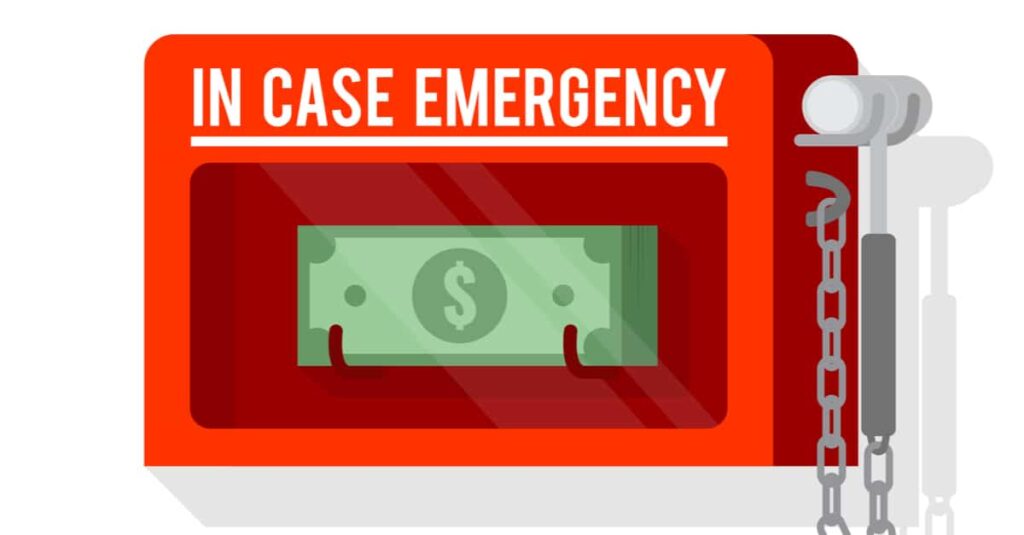What are sinking funds?
Surely I’m not the only person who has been reading and listening to information on personal finance and- up until recently- had never heard the term “sinking funds.” The nerd in me learned what it was and still couldn’t make sense of what the word meant in its literal form. So I went to the world’s source for information! It’s unequal to any other outside of the handy Encyclopedias we used for research papers: Wikipedia! Wikipedia indicates that sinking funds were used back in the 1400’s in Italy. But the term originates in 1700 England. Back then, a government borrowing money would issue bonds. This was called floating a bond. So to sink a bond was the opposite and meant to repay the debt.

Fast forward 300 years to modern day, non-government budgeting on our personal computers and a sinking fund in its purist, most generic sense is to create funds of money a bit at a time in preparation of an upcoming expense. Little did I know that opening separate savings accounts at my credit union was called a sinking fund. I opened up separate accounts for travel expenses and housing maintenance. I didn’t know that rolling my overbudgeted electric bill’s money to the next month was a sinking fund. Essentially it’s preparing for the future for intentional purposes. The end date can be known (Christmas) or unknown (need for a new car). It’s genius! Unless you don’t want more money in savings than you know what to do with or feel that money isn’t propelling you forward.
What is an Emergency Fund?
An Emergency Fund by contrast is a fund set up (usually for 3-6 months of expenses) that you keep liquid. People often put this fund in a high interest savings account so it’s there for emergencies (I’m brilliant, right!?) But what exactly is an emergency? For some it could be a big car repair or a broken water heater. A child who needs 5 cavities filled (not that I know this from experience) or getting laid off work.
Every person needs to define an emergency as they feel comfortable and as their financial situation allows. I am a fairly green saver and a very practical person that doesn’t want endless amounts of non-growing money sitting around for future events that may not rear their ugly heads. So it shouldn’t come as a surprise that I feel that some people are going overboard. This whole world of “3-6 months saved plus saving for every predicted upcoming expense you can think of” throws me for a loop. Let me explain my thinking further…

Why sinking funds don’t seem ideal for those just starting out
Yesterday I posted on a Facebook financial board about Sinking Funds vs Emergency Funds. Despite many of the responses I got, I didn’t post because I don’t know the difference. I posted because I feel like I get to a point where I’m throwing my money at this fund and this fund and, oh, don’t forget about the fact that 2 years from now I may need a new iphone and my kids will need their wisdom teeth out in the next 8 years and my mailbox may rot out in 2 years and my computer may go caput while trying to post my ramblings, and and and.
You get the point… when does the insanity stop. When do we realize that while some sinking funds can be predicted, some are best served in an Emergency Fund. You can also use a “forgot to budget” overflow category in your budget or a very focused, short-term sinking fund.
One post actually had 21 different sinking funds that “most people could benefit from”. I thought that was a bit far fetched but, as I read them, most were pretty practical. Anyone who knows me knows that practical really should have been my middle name or perhaps part of a hypenated last name.
** hollers “Deborah Practical“** It has a nice ring to it but doesn’t quite roll off the tongue…
I digress!
Where does the sinking funds insanity stop?
Okay, so 21 different sinking funds… we’ve got Christmas and dentist and medical and new car/car maintenance and pet care and gifts and clothing and vacation and braces and and and and and and and and and and and and. Even just putting $20 in each account would equal over $400 of money that’s sitting there and accumulating each month after month waiting for that sinking moment when they’re called upon.
Surely I’m not the only person trapped in a bit of a budget traffic jam. I want every dime to have a job and want that money to have an impact. My money is limited. My priorities are providing for my family, investing in my future, and saving to protect us from detriment. Saving from detriment IS a priority. But I don’t feel that it has to be in a form of more subcategories than I have fingers and toes.
I feel that if I didn’t have these 21 categories and let’s say my child needed 5 cavities filled, I would try to add to my medical category that month. Or I would take that money from my emergency fund if I hadn’t set up a sinking fund for dentistry or didn’t have a Health Spending Account to draw from. Yes, I know that one day I’m going to need a new car. Yes, my kids will need more braces. And yes, they will have a school trip that I didn’t start saving for when they were 5. But thankfully most things that come up in life, planned or unplanned, have a bit of a grace period. And even if they don’t, isn’t that why you have an emergency fund sitting collecting dust somewhere!?
Alternative option when you’re just getting started
I’ll be honest for the sake of full disclosure and say that I did have sinking funds prior to knowing what sinking funds were. Still do. I do think that they have some legit validity. Just not as much validity as people often give them, especially for beginning savers/budgeters/investors. Mine amount to small extras set aside above my monthly expenses: car issues, electricity, medical, clothing, dogs, hair, and travel. Plus I have my $200 left in my “What I forgot to Budget for” category. Often times this would be better off being called “What I needed from Amazon” or “expenses the kids told me about the night before the money was due”. This money rarely manages to roll over from one month to the next because, you know, life.
These are small, manageable sinking fund amounts though. They won’t break me if I add them in or if I have to steal from them for a few extra groceries on a particular month. And for me, I’d rather only save them to a practical level. I’d rather put the more substantial amounts into a generic emergency fund. My emergency fund is my insurance policy. It’s my safety net should I have an unexpected expense or emergency not covered by my nipped and tucked budget.
Work on your Emergency Fund first, then start building Sinking Funds
The place of a generous Sinking Fund with 21 subcategories is in a more mature budget where the emergency fund is voluptuous, Roth IRA’s and Index Fund investing comes as natural as breathing, and extra money in the budget is easily made available for putting aside as needed. But it’s my hope that when I get to that level of financial maturity that sinking funds are no longer an issue because I have such an inflow of money that nothing really phases me too much.
In the meantime, I have food on my table, a roof over my head, a few investments, and an Emergency Fund. An Emergency Fund that is taking priority over Sinking Funds, at least until I’m comfortably established. You do what you have to do to be comfortable. Don’t feel like you’re a failure if sinking funds just aren’t in your budget right now. I find that being able to go to sleep at night without worrying about finances is a good gauge for that comfort level. So here’s wishing sweet dreams and many restful nights ahead 💛
